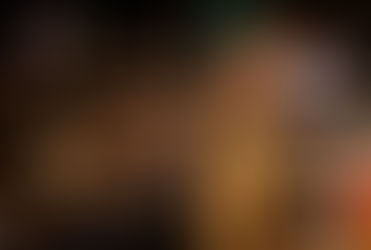Dear Ireland: Part Four
- Chris O'Rourke
- May 2, 2020
- 4 min read
Updated: May 3, 2020

Dear Ireland presented by The Abbey Theatre. Image uncredited
Into the final furlong and Dear Ireland: Part Four makes an eager dash for the finish line, letting loose the reins and charging home in considerable style. Featuring several strong productions, communicating digitally still dominates as a vehicle with many characters talking to, or through, devices. The dangers of technology addressed in A Letter To The Manager by Sonya Kelly, in which Deirdre Donnelly confides the daily banalities of her loneliness in a letter of complaint, highlighting the limits of technology when it comes to human connectedness. Attempts to reclaim that connectedness being one of Dear Ireland's noted ambitions. Fracturing isolation through isolated monologues to become bigger than the sum of its component parts.
If there’s lessons to be learned, one must surely be that comedy deserves to feature more in any similar endeavours. Despite the most uncomfortable close-ups ever, the delightful End Meeting? by Darach Mac Con Iomaire, finds Eoin Ó Dughgaill hilariously poking fun at the narcissistic vanities of actors, now an essential service engaging in acts of charity. Deliciously irreverent and delightfully refreshing, Ó Dughgaill bursts much of the seriousness of the Dear Ireland bubble. The delightfully deceptive The Good Thief, by David Ireland, sees the recently burgled Abigail McGibbon wondering what Jesus would do with her bible thumping mother. Likely to leave you LOL, McGibbon's understatement shines in this subtle, dark comedy.
Efforts to engage visually prove hugely impressive in several instances. The Golden on the Grey, reuniting Margaret Perry with Breffni Holahan, delivers a series of disjointed fragments that play like stanzas making up a complex whole. One in which Holahan is magnetic as she reflects in isolation, the camera simply adoring her. As it does Kathy Rose O’Brien’s in Joseph O’Connor’s equally fragmented Grace, as Rose O’Brien hugs her cardigan like a comfort blanket, or a sneaky cigarette, video diary-ing her life and relationship under Covid-19. Right upon to the final, cryptic image. Another reunion sees Ciara Elizabeth Smyth reunite with Camille Lucy Ross in the impressive Party Party, in which Ross boasts of her amazing life with a self-aware twist in the tale. Delivered as a staccato of lines and images, this deceptive study of loneliness over breakfast, lunch and dinner, also keeps you guessing after the end.
Several character studies also deliver some clever twists. Flake, by Keith James Walker, sees a pitch perfect Ashleigh Dorrell imagining a dystopian future while remembering a night in paradise, all leading to a deliciously wicked ending. Let’s Unpack That Shall We sees Una McKevitt give a clever twist to Katherine Lynch’s profession as an online counsellor helping with Corona overload.
The past and the present collide in several productions, including Joe by Mark O’Halloran, in which an aged Andrew Bennett, struggling with laboured breathing, delivers another superb study in loneliness and the hope of second chances. Conversations With… by Jody O’Neill, finds Marie Mullen condemning caring Ireland for not caring then, looking back to when children were taken from unmarried mothers, the pain revealed in Mullen’s superbly understated performance. A glorious Peter Gowen, failing to see eye to eye with his daughter, delivers monologue as personal encounter in the delightful comedy of error The Three Irishmen by Kit De Waal, in which new and old Ireland clash with unvarnished verve.
Innovation, textual and visual, pushes at boundaries in Stone Mad From The Flavour Of The World by Blindboy. In which Cathy Belton’s surreal inner monologue is delivered against a pulsing beat, wondering if Michael D.Higgins might yet save us all. The Temple Is Closed, written and performed by Emmet Kirwan, opens like an Ad Exec's pitch with its graphics and images, before a wonderfully self-deprecating Kirwan spins off to play with narrative with a Pirandello-like playfulness.
At the heart of Dear Ireland lie unique and diverse voices struggling under Covid-19. Dear Ireland You Will Hardly Notice My Absence by Rosaleen McDonagh might risk Sorcha Fox descending into a noise cancelling rant because the world owes her something, but listen a little closer. A prison cell, hospital ward, or hotel room, Fox finds no softness in humanity as a traveller housed in a hotel supervised by the same bigoted manager who refused her admission ten years before on her wedding day. Veering towards a life altering decision, it becomes clear that self-isolating is nothing new to Fox for whom keeping her distance was already a speciality. Heartfelt and heartbreaking, an impressive Fox, and some fine writing by McDonagh, deliver a wrenching study of a woman lost between worlds. One of McDonagh’s most compelling works to date.
Setting out into uncharted waters, Dear Ireland was an ambitious undertaking. One involving a monumental amount of work, with very little time to deliver. Sure, some pieces are stronger than others, text sometimes struggles with the medium, and the unforgivable commercials look cheap and tacky. But Dear Ireland brought individuals back into community, sharing their talents in a time of need. As a first step into a new possibility, results are often impressive. Nothing can never replace live performance, but when the deserved back slapping ceases, there’s much Dear Ireland can be proud of in the cold, hard light of hindsight. Congratulations to everyone involved, including all those behind the scenes. There are six months in which all fifty monologues in this historic endeavour can be viewed online. Enjoy them at your leisure.
Dear Ireland, presented by The Abbey Theatre, can be viewed for six months from May 2 on their dedicated Youtube channel.
For more information, visit The Abbey Theatre.





















